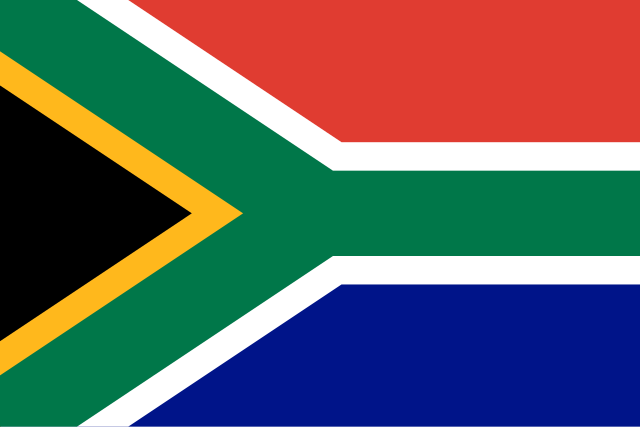Culture Reflection: 1990 - 1993
The Cold War was over. With the coming of a new decade would end the long standoff between the two superpowers that kept the world on the edge of their seats for half a century. However, it ended not in hellfire, but in peace. Both powers were not the same as they were decades prior. The United States enacted more and more reforms, as they would lean further away from such a strong adherence to capitalist sensabilities. Meanwhile, the Soviet Union's internal problems and foreign policy issues would nearly doom it, only to pull itself out of the pit by reforming into a different nation entirely, that of the Sovereign Union, while now taking some time away from global politics to focus on the internal issues, such as corruption, worn out systems and so on, which were treated with a good amount of force. And it was here that the new global paradigm had been born. One that took the elements of capitalism tht functioned along with socialism and begin trying to meld them together in certain degrees to get something optimal from it, learning from the lessons of others. Another shift of the paradigm, albeit one that was taking longer to be noticed, was the decreasing dominance of industry and the service economy and related sectors, such as finance, rising into prominence. And the influence of this shift was being being felt as it would spread across the world. The early 1990s would be considered the start of a new generation. The Brightbangers, born between the early 1960s to the mid 1970s were coming more of age, many reaching voting age during the Udall and early Askew adminstration, influencing their politics and championing an appreciation of the reforms. They have also begun to compete with the Baby Boomers on influencing the youngest generation, those born in the late 1970s and through the 1980s and would begin coming of age in the 1990s, that of the Freeborn Generation. A portmanteau of "free" and "born" or "reborn", the name came from a Brightbanger publisher, noting that the hopes of the youth born in the late 1970s and 1980s would be born free of the troubles and issues of the past. The name would get a second meaning as they would be the first generation coming into adult and seeing the end of the Cold War and approaching the new Millenium.
General Trends
With the end of the Cold War and the ongoing deescalation of the conflict, a rather fascinating phenomenon began occurring over the United States along with parts of Europe and other nations involved in the greater NATOsphere. The question that appeared on many people's minds was "What now?". After all the anxiety and concern over the future because of nuclear weaponry and the Cold War, the whole thing ended not with a bang, but with a peaceful resolution. While relief came on everyone's minds and there was the hope for a new tomorrow... what would that tomorrow bring? While the regional wars such as the Yugoslavic Wars, the Armenian-Azerbaijani War and other conflicts in the Middle East did show the world was not entirely at peace, it was still a general sense. Additionally, for the baby boomers, now having their own families and enjoying a higher standard of living thanks to the reforms put in by the Udall and Askew Administration, many were approaching an impasse in their lives. The older ones were approaching their middle age while others are realizing they may need to change careers. How would they deal with the change and find a new sense of meaning now that the background of the Cold War was gone? Various outlets did become open more and more to them. Many of them, especially the younger ones, put the focus over on with their kids. One notable side effect eas thanks to the gradual but growing acceptance and understanding of SATMIN+ folk, especially with the spead of ASIMTAFE centers across the US and other support groups, a growing number of children and teenagers were beginning to realize their sexual orientation sooner and the presence of the groups would help play a part for them and their guardians in understanding. Other older folk would begin trying to navigate the growing world of computers and the rise of the service industry while some more would begin embracing hobbies as a way to deal with the oncoming changes. After all, with the environmental and ecologic focused mindset gradually becoming more and more ingrained in the collective consciousness of the "first world", people were adapting more to the new status quo, such as taking into urban gardening. Many even found a new romantic sense of purpose in "returning to the land" and the sense of freedom and community that came from people coming together to produce for themselves and the rise of locally-produced foodstuff such as plants, meats and dairy cuts. While still in its infancy, the influence of this growing movement would have rammifications for the nation, economy and even politics, with this sort of neoagrarian romanticism.
Meanwhile, things keep gradually settling down as preestablished trends begin taking greater hold in the mainstream. More and more are the police having to be taught some deescalation tactics and applied since the War on Drugs ended and the successful coordination in dealing with the Waco compound reinfforced that. Another was ending the War on Drugs to further addressing the needs of addiction and pushing more and more for people to get the help that they need. This was definitely seen in Hollywood as more and more actors or other prominent people would be taking leaves for their mental health, which also showed a rise in taking mental health seriously, especially thanks to its coverage under healthcare. While children would not see psychologists annually like a physician, more and more parents would take their children to be evaluated and leading to the growng understanding of mental health and how to best help them in growing up. Another noticeable aspect in pop culture would be push that third wave feminism has done in holding men of power accountable and addressing the toxic work environment there. In fact, this led to a fascinating opportunity as other states and cities realized they could capitalize on Hollywood's weakness and work to break the near-monopolistic hold that Hollywood had on media production. This coincided with another longer-trend, that of trying to grow the computer industry. While places like California remained popular, more states were noting the change in the economy and would begin creating incentives for companies to either move to said state or intiatives to help their homegrown talent. With the decline of the coal industry now inevitable, West Virginia and similar states have begun investing more and more into growing their technological sector and they have begun attracting people who were interested, especially as they would also connect with tech-invested politicians like Tennesse also making a push thanks to the presence of "Atari Democrat" Al Gore. Michigan and other places would begin doing the same while also taking advantage of the growth of public transportation as seen with the growing need for trolleybuses and growth of rail lines and the like as part of the ongoing eletrificiation process of the rail lines, which was signalling the beginning of a massive shift in public perception of public transportation.
Greater trends were also being implemented over time. With the greater scrutiny on oil companies came a domino effect that would lead to ripples in many different areas. Plastics, having been wanting to avoid the grip of regulation, have found themselves squeezed more than other. While some got away due to their durability, thsoe that were of single-use or meant for consumption and thrown away was unaccecptable. Attempts at trying to convince for recycling would largely fail mainly due to internal research revealing the difficulty and impracticality of recycling most single-use plastics. The only solution that did stand out was disinfecting and reusing plastic containers and the like such as cutlery and even then, the effects that came from degradation of plastics such into small fragments. This in turn would lead to having to address recycling as a whole for the nations. Some were obviously easy such as metal cans, cardboard boxes and most paper, which meant that planning regulation on federal and state levels for recycling services was relatively simple and easy. Plans such as having recycling bins in housing and in public while expanding job opportunities for its processing. Other more esoteric ideas would become included, especially when certain interest groups pushed for it. One major example was recycling vegetable oil and cooking grease, with it being for usage in biodiesal purposes. More and more of this sort of legislation was finding itself passed and for most folks, despite initial concerns, just required being more careful in where to put items in each bin while just the large decrease in certain plastic containers in grocery stores and the like. More and more these behaviors of careful disposal and choice would become second nature, especially with the younger generation who would grow up with it.
Film
Hollywood continued its transitional phase of dealing with powerful figures, usually men, because of their abusive actions. This became more and more prominent as abuse cases and other horrid revelations came about, such as what happened with the two Coreys. This would unsurprisingly be having a somewht detrimental effect regarding the films produced as well as a slowdown of it. Meanwhile, people like Ted Turner would be taking advantage of Hollywood's decline to try and grow the media industries in their home states such as Turner Broadcasting making their plans over in Atlanta and other nations considering the same. However, somewhat balancing this out would be the rise of new talent in acting, writing, producing, directing and in business. They were willing to take chances and push the boundaries. This became especially prominent at this time due to it being the middle of what would be the era of "queersploitation" films. B-films that would hev prominent support from the SATMIN+ community would come out, usually being rehashes of previous films. It would be around this point that some of the problems of the "genre" were being seen, especially among the younger adults who were not as close to the "old-school" aspects of American SATMIN+ culture of the older days of Hollywood. At the same time, some of them were rather good, and did take liberties with the source material to expand such as
Romeo and Julian and similar films. The question was now on how films would handle this in the future, especially with the beginnings of various discussions and talks with the big studios over content and the like.
However, there were still plenty of big name films.
Total Recall, Back to the Future III, Dances with Wolves, Silence of the Lambs and
Jurassic Park would be remembered as entertaining and large blockbusters of the time. Spike Lee would end up also putting his name also in Hollywood with the success of his
Do The Right Thing and
Malcolm X "joints", which would help push the boundaries of what could be done and what people demand to see, especially in regarrds to people of color.
Batman Returns would seem to continue to show that films with superheroes still had some promise though it would also become rivaled with the rise of animated films. Disney's partnership with Miyazaki would continue to bear fruit as many people were enchanted with
Kiki's Delivery Service and
Porco Rosso, which further showed what Japanese animation could do and began leading to further consideration of dubbing down the line, though one potential project there was in hot debate over at Disney, namely with how much of a gamechanger it could be and if they were the right ones. Meanwhile, with Disney itself, they were now back on their feet, releasing grand hits like
Beauty and the Beast and
Aladdin and even the magical cult classic known as
The Nightmare Before Christmas. It was showing that Eisner's handling of the company was quite successful so far though many wonder what the future would hold now that Katzenberg has more or less been forced to leave Disney and having his own plans. It seemed that the film industry would be approaching an additional period of transition.
Television
Television would continue seeing the rise and the domination of sitcoms and domcoms, presenting idyllic family life going through a series of light-hearted adventures though sometimes they would go and push the envelope, going into more serious fares. With the increased presence of such shows on television such as
Full House, other shows would attempt to diversify by appealing to specific demographics or gaining various niches. From
Family Matters (a successful spinoff of
Perfect Strangers) focusing on for a middle class faily of color to
Roseanne aiming more toward blue collar workers (who have actually gotten an increased presence in media and focus in aiming content at them). While some of the shows were ending, most famously
Huxtables’ House, an exceptionally popular sitcom that worked to break the stereotypes associated with African-Americans. However, as some were ending or winding down, such as
Full House approaching its final season, others were coming in. One notable one was
Fresh Prince of Bel-Air, focusing on urbanite Will moving with his well-off aunt and uncle and away from the city, exploring the differences. Another would be
Boy Meets World, which would see the protagonists growing up and dealing with the troubles of life. Also notable would be the rise of same-sex couples appearing in some of these. While usually as guest appearances with sproadic shots, it was still quite a surprise in television trying, if gingerly, to show and write them. Beyond that, there were plenty of shows focusing on crime, drama and many more subjects to enjoy.
Twin Peaks would become quite ground-breaking for its dreamy atmosphere and strange nature, with it becoming a large inspiration to an unexpected franchise.
Meanwhile, animation over on television has been seeing a strong growth. The launch of Cartoon Network meant that childrens were spoiled for choice in watching all sorts of new animated shows, with many of them having plenty of references or subtle jokes for adults who were watcing them. Disney would continue the domination wth various shows based off of their films along with additional ones such as
Darkwing Duck or
The Little Mermaid: The Animated Series and many more. Shows like
Animaniacs or
Rocko's Modern Life pushed the envelope over what adults-aimed jokes could be done, an expression knowin as "flying under the radar." Additionally, action-oriented shows would also become quite a stand out hit and capturing the imagination of kids such as
SWAT Cats: The Radical Squadron, X-Men, and especially
Batman: The Animated Series would show that appealing to sense of action would work well, but also that children could handle more serious content, which was getting the idea of various individuals down the line for future shows
. Batman: the Animated Series in particular would become a subject of plenty of interest because of the upcoming animated film associated with it and would seem to show what would be better for superheroes. Meanwhile, there were shows like
Aeon Flux and
Beavis & Butthead that showed that there was some animation opportunities aimed for teenages and young adults. This would gather some interest over some various individuals on what to adapt and use over time.
Music
The decade began with the end of 1980s-styled pop music, all thanks to the infamous
Filli Vanilli scandal. This left a large void over in the music scene that was looking to be fulfilled by many things. Electro music began its rise in prominence, having been developing since the 1980s and now coming into its own right. However, right now it was overshadowed by the explosion of rap and hip-hop into the mainstream, especially influenced by the successes of Spike Lee's works, with related genres also brought along with the ride. Rap and hip-hop began taking many shapes and forms, influenced by the going-ons of the world at the time. From the cries of social justice and demand for peace to the more down-to-erth and soulful religious fervor toward nature and agarian elements to even more existential themes and elements. However, the concern was coming over the growing rivalry between the East Coast and West Coast had been a bit of concern over for the music.
Another music genre that was growing among the same lines of rap and hip-hop was alternate rock. Taking in the classic rock and roll elements to the next levels, groups like
Nirvana would grow and become more popular among the youth. Meanwhile, the riot grrl movement would experience a second wave of popularity and fresh charge, riding off the anger from the actions of powerful males in Hollywood along with expanding the various genres. At the same time, they were wrestling with dealing with the mainstream along with the branch offs mixing in with other music and leading to some new develops, such as grrl-rap, a fusion of riot grrl and rap that would start growing popular among African-American women predominantly among others. This conflict over with the mainstream along with the issues of dealing with the business aspect of music would become a trouble that many of these growing genres would have to face and figure out. Some would even show said frustration in thei way such as Prince's change of his name to a symbol, done to show his frustration with his record label. Other genres sincluded the blues by Mariah Carey with her self-titled album, which helped cement her fame. Other figures such as Micheal Jackson would take a leave of absence, some for health reasons or others because of the stress. There was an existenial sort of anxiety going on in the music world and people were trying to find solutions to it along with navigating the increasingly complicated nature here.
Other
Video games began proving themselves as becoming mainstays over in the multimedia landscape. The release of the
Super Famicon or known outside of Japan as the
Super Nintendo, would usher in the next generation of consoles, jumping from 8-bit to 16-bit graphics and showing off more of what video games can do. With titles like
Super Mario World, The Legend of Hyrule: Link to the Past and so many others, the SNES was becoming quite popular and containing man games that would become classics down the line. However, SEGA would enter the games industry to and begin the so-called "Console Wars" as they would unleash on he Sega Genesis their own mascot to rival Mario, the rebellious hero with an attitude, Sonic the Hedgehog. With quick gameplay and a different pace than the others, many kids and teenagers would become enamored over with the increasing selection of games. One aspect that helped out alot would be how large video rental stores such as
Blockbuster and small local stores would adopt renting out video games as well as films and the like, diversifying their content. Computer gaming would also begin rising in popularity gradually with the growing strength of computers and various companies were taking interest, including Microsoft, who was revealed to have bought a controlling interest in Atari.
The Brass Age of Comics was now fully in swing now with Marvel having done a grand reboot of many of their franchises, doing it to try and ground many of their things in the upcoming new age while also to better handle and deal with things in the past. While many of the works were promising, there was more to the growing comic book industry than even the renewed interest and limit pushing by DC and Marvel. Image Comics would be found by many high profile illustrators and even a few writers over to try and push for more independent comics. Namely that writers and illustrators could publish their own creations and maintain copyright over their creations unlike what was the case over with the Big 2. This was not the only major development. Another was the founding of Valiant Comics over in 1992 by Jim Shooter and various other financial backers. Many believe that this was done due to some of the growing conflicts Shooter was having not just with some of the folk over in Marvel, but also with Paramount Communications, the parent company that helped acquire Marvel. Ultimately, Shooter would sell his stake for a large bit of money and Voyager Communications would gone on to find Valiant Comics. Interestingly enough, their first move would be a merger with none other than Malibu Comics. While initially interested over into going with video games, concerns over viability led to shelve it for the time being and Malibu Comics being bought out, resulting in a reboot, with the launching over of the Ultraverse now under Shooter over with Valiant Comics. Other releases would be none other than Milestone Comics, a company focusing on comics that would address the underrepresentation of minorities in comic books. Partnering up with DC for publishing, Milestone would begin with the release of major hits like an African-American Superman-like hero known as Icon, who possessed Superman-like powers though with powers focused more on gravity and Static, a teenage African-American superhero inspired by Spider-Man who got his name from his ability to make things "static" or stop though strange energy, all centered in a Dakotaverse. While it would be unknown how long this would last, it would still be viewed with intrigue by many.





